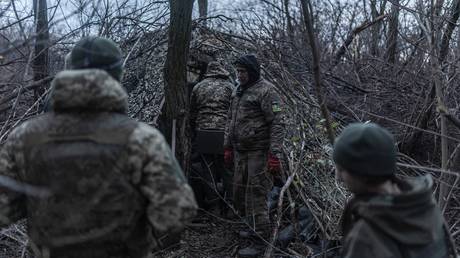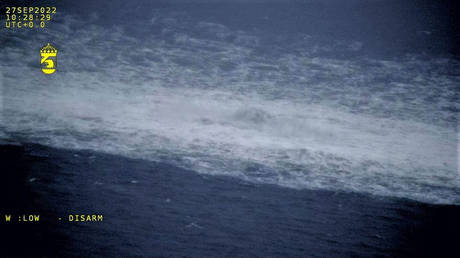ARTICLE AD BOX

BARCELONA, Spain — At least 63 people have died in eastern Spain after flash floods swept away cars, turned village streets into rivers and disrupted rail lines and highways in the worst natural disaster to hit the European nation in recent memory.
Emergency services in the eastern region of Valencia confirmed a death toll of 62 people on Wednesday. The central government office for Castilla La Mancha region added that an 88-year-old woman was found dead in the city of Cuenca.
[time-brightcove not-tgx=”true”]Rainstorms on Tuesday caused flooding in a wide swath of southern and eastern Spain, stretching from Malaga to Valencia. Floods of mud-colored water tumbled vehicles down streets at high speeds, while pieces of wood swirled in the water with household items. Police and rescue services used helicopters to lift people from their homes and rubber boats to reach drivers trapped on the roofs of cars.
Spanish Prime Minister Pedro Sánchez said dozens of towns had been flooded.
“For those who are looking for their loved ones, all of Spain feels your pain,” Sánchez said in a televised address. “Our priority is to help you. We are putting all the resources necessary so that we can recover from this tragedy.”
Authorities reported several missing people late Tuesday, but the following morning brought the shocking announcement of dozens found dead.
“Yesterday was the worst day of my life,” Ricardo Gabaldón, the mayor of Utiel, a town in Valencia, told national broadcaster RTVE. He said several people were still missing in his town.
“We were trapped like rats. Cars and trash containers were flowing down the streets. The water was rising to three meters,” he said.
Over 1,000 soldiers from Spain’s emergency response units were deployed to the devastated areas. Rescue services were also rushing eastwards from other parts of Spain. Spain’s central government set up a crisis committee to help coordinate rescue efforts.
One elderly couple was rescued from the upper story of their house by a military unit using a bulldozer, with three soldiers accompanying them in the huge shovel.
Television reports showed videos shot by panicked residents documenting how waters flooded the ground floors of apartments, streams bursting their banks and bridges giving way.
Spain has experienced similar autumn storms in recent years. Nothing, however, compared to the devastation over the last two days, which recalls floods in Germany and Belgium in 2021 that saw 230 people killed.
The death toll will likely rise with other regions yet to report victims and search efforts continuing in areas with difficult access.
In the village of Letur in the neighboring Castilla La Mancha region, Mayor Sergio Marín Sánchez said six people were missing.
Spain is still recovering from a severe drought and continues to register record high temperatures in recent years. Scientists say increased episodes of extreme weather are likely linked to climate change.
The storms unleashed a freak hailstorm which punched holes in car windows and greenhouses as well as a rarely seen tornado.
Transport was also impacted. A high-speed train with nearly 300 people on board derailed near Malaga, although rail authorities said no one was hurt. High-speed train service between Valencia city and Madrid was interrupted, as were several commuter lines.
Valencian regional President Carlos Mazón urged people to stay at home, with travel by road already difficult due to fallen trees and wrecked vehicles. Authorities warned that the danger was not over with more rain coming.
As the waters fell, thick layers of mud-covered streets.
“The neighborhood is destroyed, all the cars are on top of each other, it’s literally smashed up,” Christian Viena, a bar owner in the Valencian village of Barrio de la Torre, said by phone. “Everything is a total wreck, everything is ready to be thrown away. The mud is almost 30 centimeters deep.”
Outside Viena’s bar, people were venturing out to see what they could salvage. Cars were piled up and the streets were filled with clumps of water-logged branches.
Located south of Barcelona down the Mediterranean coast, Valencia is a tourist destination known for its beaches, citrus orchards, and as the home of Spain’s paella rice dish.
Like some other areas of Spain, Valencia has gorges and small riverbeds that spend much of the year completely dry but quickly fill with water when it rains. Many of them pass through populated areas.
The rain had subsided in Valencia by late Wednesday morning. But more storms were forecast through Thursday, according to Spain’s national weather service.
.png)
 4 weeks ago
1
4 weeks ago
1








 English (US)
English (US)